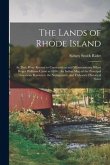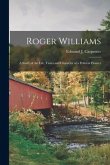Roger Williams is best known as the founder of Rhode Island who was banished from Massachusetts in 1636 for his dangerous thoughts on religious liberty. But the city and colony Williams helped to found was deep in Native country situated between the powerful Narragansett and Wampanoag nations. The Williams that emerges from the documents in this collection is immersed in a dynamic world of Native politics, engaged in regional and trans-Atlantic debates and conversations about religious freedom and the separation of church and state, and situated at the crossroads of colonial outposts and powerful Native nations. Williams lived among and relied on the generosity of his Narragansett neighbors and yet he was a Native enslaver and part of a process that dispossessed regional Indigenous populations. He could establish a colony based on full religious freedom and yet bitterly complain and campaign against residents with whom he disagreed, such as Samuel Gorton or the Quakers. For the first time, Reading Roger Williams offers readers the opportunity to explore the many facets of Williams's life by including selections from all of his writings, starting with his life in London and ending with one of his final letters, written when he was nearly eighty years old. Each document includes an introduction and annotations to help the reader better understand the text and context.
Hinweis: Dieser Artikel kann nur an eine deutsche Lieferadresse ausgeliefert werden.
Hinweis: Dieser Artikel kann nur an eine deutsche Lieferadresse ausgeliefert werden.









